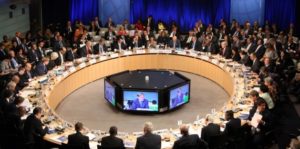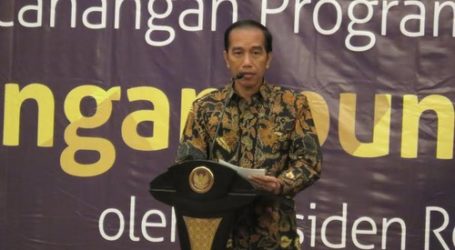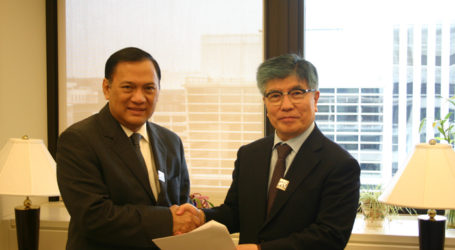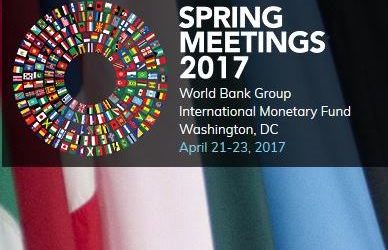Global Challenges Continue to Decrease Global Growth Projection – WBG/IMF

Washington, 09 Rajab 1437/15 April 2016 (MINA) – Top officials for the World Bank Group (WBG) and International Monetary Fund (IMF) on Thursday reiterated the warning of a slower global economy growth and the rapid need for “tailored” structural reforms to face them.
“We have downgraded our growth forecast globally this year to 2.5 percent from 2.9 percent,” announced President of WBG Jim Yong Kim here at the opening of the 2016 WGB-IMF Spring Meetings, stressing that the weakening economy “threatens our progress toward ending extreme poverty by 2030,” a goal that was set in the meetings last year.
Kim also announced that as of today, 700 million people around the world are living in extreme poverty – a reduction of more than one billion people than 15 years ago, yet some major challenges are facing the world today such as forced displacement, climate change, and pandemics, Mi’raj Islamic News Agency (MINA) quoted KUNA as reporting.
He said that because of these global challenges and slow economy, “the demand for our services has never been higher outside of a crisis period,” noting that the WBG projects to provide more than USD 25 billion in loans this year to middle-income countries, which adds up to USD 150 billion in the last four years “more than any other four-year span in the World Bank’s history in a non-crisis period.”
Answering a question on Syria, which requires USD 150-180 billion to have it “return at the same level it once was,” Kim said “we are very worried (because) the usual strong supporters from the region countries are facing fiscal deficits,” explaining that since per-oil-barrel prices are no longer at the 100’s “we are afraid it may not be grant based support.
“This increased demand underscores the importance for donor countries to support our replenishment this year for the International Development Association, or IDA, which gives low-cost loans or grants to the poorest countries, and essential for us to work on our goals to end extreme poverty and boost shared prosperity.”
He noted that the WBG is going to “tremendously increase” to address the humanitarian conditions in various countries such as stabilizing the economy in Tunisia, focusing on the youth that “have no hope for the future” and a very high unemployment rate even among college graduates, which caused it to be a high exporter of so-called Islamic State members.
The WBG will continue to support Jordan and Lebanon who “gave the world a great service” providing shelter to Syrian refugees, said Kim, noting that the WBG have used their IDA fund to support them.
Plenty to worry about
On her part, IMF’s Managing Director Christine Lagarde said in a separate press conference that the economy slowdown reflected by IMF’s lowering of its growth forecast for the next two years in recent released report is “not enough to lift the living standards in the world.”
Lagarde stated that the downside risks are increasing, weak balance sheets in many advanced countries and low commodities prices are but some of the challenges the global economy is facing.
“There is plenty to worry about,” Lagarde said, nevertheless; “we are in a state of alert not alarm.
“We believe the global economy can actually be repaired and regain its vigor and become more inclusive, but policy changes need to be deeper,” she added explaining that those structural reforms the IMF and many other monetary policy organizations have stressed need to depend on “smart design, timing and (should have) support from other policies.” All those policies need to be “tailored,” she stressed.
On global humanitarian crises, she said global cooperation on the matter “should be stronger, as every second 30 people are displaced around the world and that needs to be addressed by the whole of the global community.”
The WBG-IMF Spring Meetings kicked off today here in Washington and will continue to host various events where speakers varying from experts to finance ministers from around the world will partake in until the end of the week. (T/R07/R01)
Mi’raj Islamic News Agency (MINA)
________________________________________






